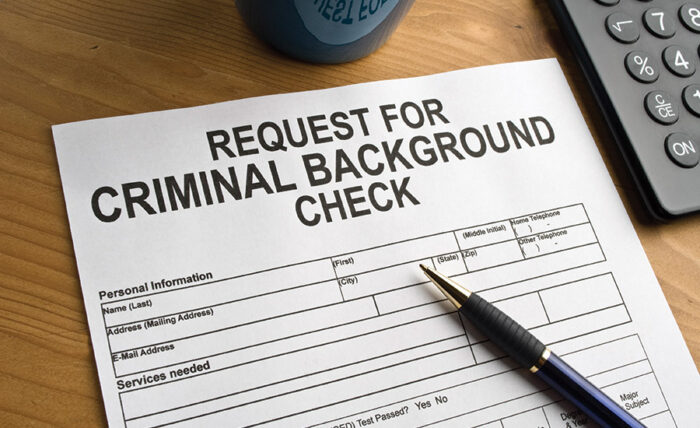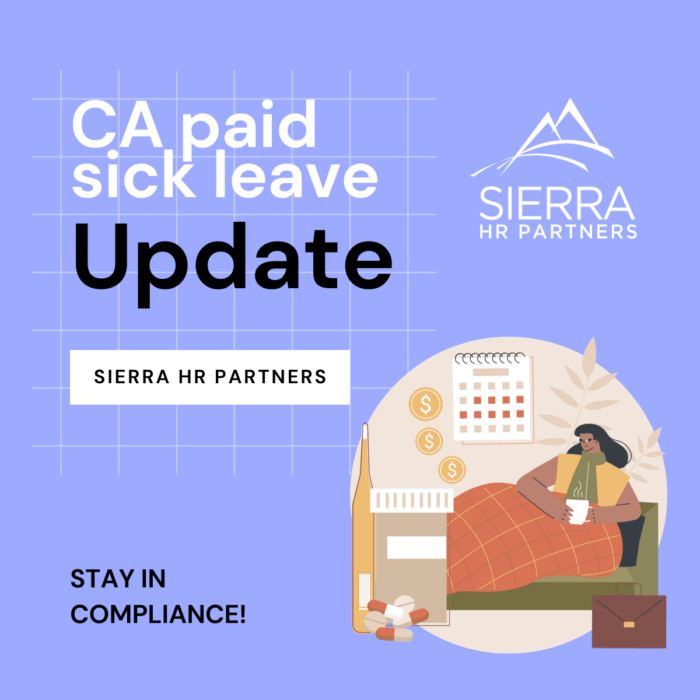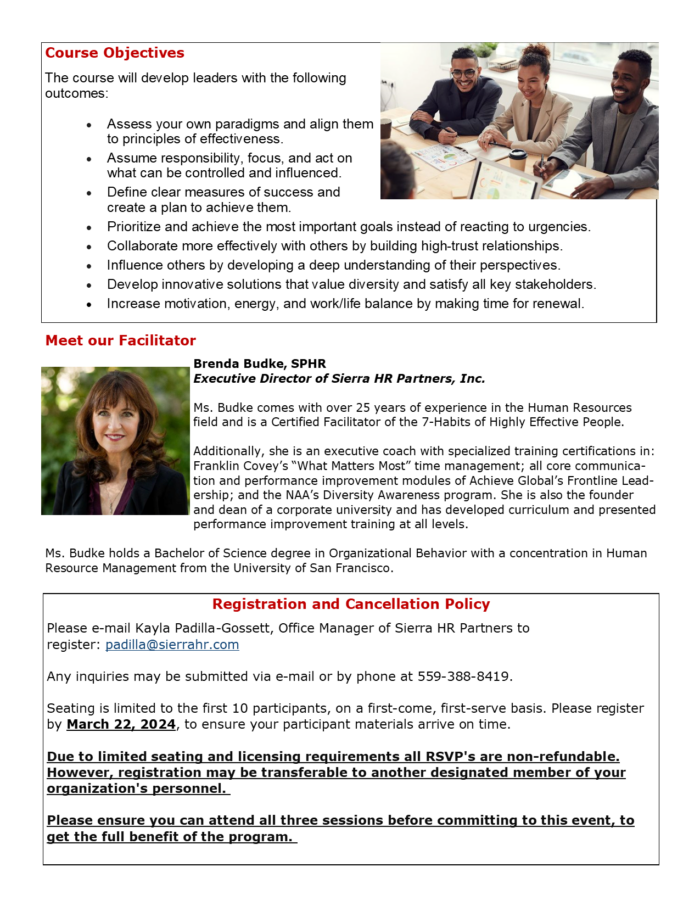04.05.24
Employer’s Emergency Storm Reminders
HR Bulletin
Employer’s Emergency Storm Reminders
 Thunder, rain and lightning are quickly moving back into the Central Valley today. If you haven’t already done so, we recommend employers have an adequate emergency action plan, as required by Cal/OSHA.
Thunder, rain and lightning are quickly moving back into the Central Valley today. If you haven’t already done so, we recommend employers have an adequate emergency action plan, as required by Cal/OSHA.
This planning may include:
-
Keeping any generators outdoors rather than indoors for proper ventilation, and ensure they are properly grounded.
-
Having some emergency back-up power to illuminate the exit signs and pathway.
-
In case of a power outage, shut off any electrically powered equipment that was operating when the power went out.
-
All powered doors must be able to be opened manually in the event of a power failure.
What about paying employees if I send them home?
If the power goes out and we send employees home since there is no work to complete or proper lighting to work, do I have to pay Reporting Time Pay (1/2 of normally-scheduled shift) or pay them for the rest of the day?
No. Reporting time pay does NOT apply when:
-
Public utilities fail, such as water, gas, electricity or sewer.
-
Work is interrupted by an ‘act of God’ or other causes not within the employer’s control
Stay safe and dry! Call us at Sierra HR Partners if we can assist you. 559.431.8090.
01.18.24
Withdrawing a Job Offer After a Background Investigation: Completing Individual Assessments
HR NEWS
 As a valued Sierra HR client, we want to be sure you are aware of the October 2023 amendments to the Fair Employment and Housing Act (FEHA) regulations, and how these changes impact an employers’ utilization of information about criminal history in employment decisions. These changes, as outlined in California Code of Regulations Title 2, Section 11017.1, introduced additional procedures that should be carefully followed by California employers when considering criminal history in decisions related to job applicants, or existing employees.
As a valued Sierra HR client, we want to be sure you are aware of the October 2023 amendments to the Fair Employment and Housing Act (FEHA) regulations, and how these changes impact an employers’ utilization of information about criminal history in employment decisions. These changes, as outlined in California Code of Regulations Title 2, Section 11017.1, introduced additional procedures that should be carefully followed by California employers when considering criminal history in decisions related to job applicants, or existing employees.
One specific area of concern is the need to complete an Individual Assessment, before an employer decides to deny an applicant the employment position he/she was conditionally offered, based on conviction history.
The employer should consider any evidence of mitigating circumstances submitted by the applicant, including:
- The personal conduct of the applicant
- Whether there was harm to property or people
- Degree of harm
- Permanence of harm
- Context of the offense
- Whether a disability (including substance impairment) contributed
- Whether the likelihood of harm could be eliminated by reasonable accommodation
- Whether the disability has been eliminated
- Whether trauma, domestic abuse, stalking, or similar factors contributed to the conduct
- The age of the applicant
- The time that passed since incarceration
- Specific job duties
- Whether the context resulting in conviction is likely to arise in the workplace
- Whether the type of harm is likely to occur in the workplace.
Additionally, final decisions to rescind an offer should be communicated in writing, including information on available procedures to challenge the decision and the right to file a complaint with the California Civil Rights Department.
Sounds complicated, right?
Our role at Sierra HR Partners is to guide you through this process. To simplify matters, we have created an Individualized Assessment form. This form is designed to provide you with a step-by-step guide in complying with new California legislation when deciding to withdraw a job offer based on background check findings.
Contact Sierra HR Partners for a copy of our Individualized Assessment Form or to learn more about our Background Investigations.
backgrounds@sierrahr.com – 559.431.8090
01.04.24
Important Reminder! California’s Paid Sick Leave requirements must go into effect this pay period!
Announcements
Senate bill 616 went into affect on January 1, 2024. All employees who work in California for 30 or more days are officially entitled to at least 5 days or 40 hours of paid sick leave annually.
If you award paid sick leave as a one-time front load each year, you will need to increase the annual amount to 5 days or 40 hours. Unused sick leave may still expire at the end of each year, and current employees must receive no less than 40 hours or 5 days at the start of the new year.

Accrual: One Hour of PSL for Every 30 Hours Worked
If your employees accrue paid sick leave at this rate, which is the default method described in the law, you may continue to do so. Unused sick leave must carry over from one year to the next, and employees must now be permitted to accrue up to 80 hours or 10 days of paid sick leave. You may limit the annual usage to 40 hours or 5 days per year.
Accrual: Other Accrual Methods/Rates
If your employees accrue PSL at a different rate, such as a certain amount per pay period or per month, you may need to adjust your policy. Employers must ensure that employees accrue at least 24 hours by the 120th day of the year, and at least 40 hours by the 200th day of the year. Employees who accrue the new maximum of 5 days over the entire year will not meet these deadlines. As stated above, unused sick leave must carry over from one year to the next, and employees must now be permitted to accrue up to 80 hours or 10 days of paid sick leave. You may limit the annual usage to 40 hours or 5 days per year.
Cities/Counties with Special Sick Leave Ordinances
 If your company is located in a municipality with its own paid sick leave law, such as Los Angeles or San Francisco, local and state rules will both apply, with employers needing to comply with the most generous law. A business in Los Angeles might need to increase its accrual cap but could leave it’s usage cap the same at 48 hours.
If your company is located in a municipality with its own paid sick leave law, such as Los Angeles or San Francisco, local and state rules will both apply, with employers needing to comply with the most generous law. A business in Los Angeles might need to increase its accrual cap but could leave it’s usage cap the same at 48 hours.
We know that keeping up with these legislative changes can be challenging, but remember you’re not alone! Sierra HR Partners is here to help you navigate the ever-changing landscape of California regulations. Please contact one our team of certified consultants if you have any questions!
consultants@sierrahr.com
559.431.8090
www.sierrahr.com
10.06.23
HR Headliner: California Increases Paid Sick Leave Requirements
HR Headliner

October 2023
California Increases Paid Sick Leave Requirements
 Last month, we let you know about Senate Bill 616, which was pending Governor Newsom’s signature to increase the amount of state-mandated paid sick leave from 3 days to 5 days. We didn’t have to wait long for the final outcome… the Governor signed the bill into law on October 4, 2023. Effective January 2024, all employees who work in California for 30 or more days will be entitled to at least 5 days or 40 hours of paid sick leave annually.
Last month, we let you know about Senate Bill 616, which was pending Governor Newsom’s signature to increase the amount of state-mandated paid sick leave from 3 days to 5 days. We didn’t have to wait long for the final outcome… the Governor signed the bill into law on October 4, 2023. Effective January 2024, all employees who work in California for 30 or more days will be entitled to at least 5 days or 40 hours of paid sick leave annually.
Most of our existing rules for paid sick leave remain the same, including the qualifying reasons for using sick leave, defined family members, and employee protection from retaliation. Your company’s approach to the increased amount of annual leave will depend on the method by which you provide sick leave to your staff.
Annual Front-Load
If you award paid sick leave as a one-time front load each year, you will need to increase the annual amount to 5 days or 40 hours. Remember that we interpret this requirement to be most generous to the employee, so even a part-timer who works 4-hour days must receive 40 hours of sick leave per year. An employee who normally works 10-hour days must receive 50 hours (5 days).
An interesting part of the revised law states that new employees must have at least 24 hours or 3 days available to use by the completion of the employee’s 120th calendar day of employment, and at least 40 hours or 5 days by the 200th day of employment. This means an employer could write its paid sick leave policy to provide just 24 hours of sick leave to new employees who are hired in the last 4 months of the year, or stagger the sick leave award (24 hours upon hire and an additional 16 hours within 6 months).
Unused sick leave may still expire at the end of each year, and current employees must receive no less than 40 hours or 5 days at the start of the new year.
Accrual: One Hour of PSL for Every 30 Hours Worked
If your employees accrue paid sick leave at this rate, which is the default method described in the law, you may continue to do so. Unused sick leave must carry over from one year to the next, and employees must now be permitted to accrue up to 80 hours or 10 days of paid sick leave. You may limit the annual usage to 40 hours or 5 days per year.
Accrual: Other Accrual Methods/Rates
If your employees accrue PSL at a different rate, such as a certain amount per pay period or per month, you may need to adjust your policy. Employers must ensure that employees accrue at least 24 hours by the 120th day of the year, and at least 40 hours by the 200th day of the year. As stated above, unused sick leave must carry over from one year to the next, and employees must now be permitted to accrue up to 80 hours or 10 days of paid sick leave. You may limit the annual usage to 40 hours or 5 days per year.
Cities/Counties with Special Sick Leave Ordinances
If your company is located in a municipality with its own paid sick leave law, such as Los Angeles or San Francisco, the local rules will still apply, provided they are at least as generous as the new state law.
 Thunder, rain and lightning are quickly moving back into the Central Valley today. If you haven’t already done so, we recommend employers have an adequate emergency action plan, as required by Cal/OSHA.
Thunder, rain and lightning are quickly moving back into the Central Valley today. If you haven’t already done so, we recommend employers have an adequate emergency action plan, as required by Cal/OSHA.


 As a valued Sierra HR client, we want to be sure you are aware of the October 2023 amendments to the Fair Employment and Housing Act (FEHA) regulations, and how these changes impact an employers’ utilization of information about criminal history in employment decisions.
As a valued Sierra HR client, we want to be sure you are aware of the October 2023 amendments to the Fair Employment and Housing Act (FEHA) regulations, and how these changes impact an employers’ utilization of information about criminal history in employment decisions. 
 If your company is located in a municipality with its own paid sick leave law, such as Los Angeles or San Francisco, local and state rules will both apply, with employers needing to comply with the most generous law. A business in Los Angeles might need to increase its accrual cap but could leave it’s usage cap the same at 48 hours.
If your company is located in a municipality with its own paid sick leave law, such as Los Angeles or San Francisco, local and state rules will both apply, with employers needing to comply with the most generous law. A business in Los Angeles might need to increase its accrual cap but could leave it’s usage cap the same at 48 hours.
 Last month,
Last month,